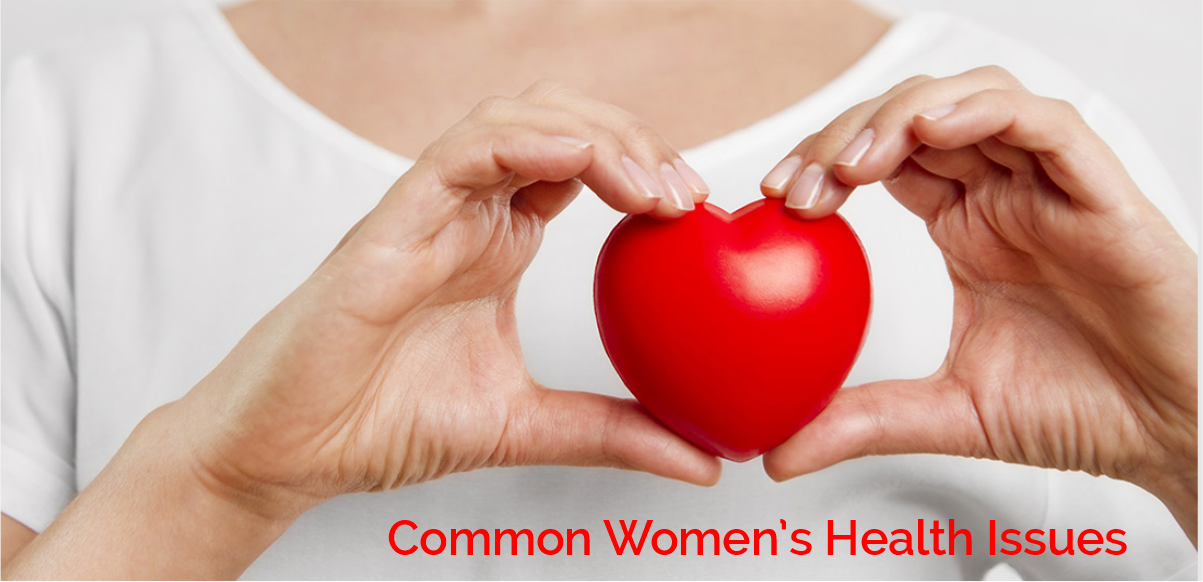

The discussions around most common women's health issues are less frequent than they ought to be. Women often experience health disorders differently from men, in ways that can sometimes be more severe and more concerning. There are also many serious health issues like menopause, breast cancer, and more that are only experienced by women.
A lot of women are not even completely aware of the most common health issues that they can face. This lack of awareness often results in deteriorated health conditions, because they fail to consult a doctor on time.
Read below to know more about what are the most common women's health issues that you should be aware of.
1. Heart Disease
Heart diseases are largely common in women all around the world. Most women suffering from heart diseases either do not get diagnosed at all or get diagnosed at later stages, when complications become severe.
Here are some of the precautions you should take to keep heart diseases at bay:
- Eat a balanced diet.
- Exercise regularly.
- Quit smoking.
- Reduce your salt intake.
- Maintain a healthy weight.
- Keep a check on your blood sugar level in case you have diabetes.
2. Pregnancy Issues
There are a plethora of health issues that are associated with pregnancy. Some of the most common ones are pregnancy loss (miscarriage), hypertension during and after childbirth, premature birth, birth defects, sudden infant death, and so on.
Getting prenatal care can be very beneficial for both the mother and the child, to deal with any existing or potential pregnancy complications. Make sure to go for regular checkups with your doctor when you are pregnant.
3. Infertility and Related Disorders
Infertility is a condition characterised by failure to achieve pregnancy after having regular and unprotected intercourse for a period of one year and six months, especially if the woman is older than 35 years of age.
Infertility in women can be caused by the following reasons:
- Failure to ovulate maybe because of ovarian or gynaecological conditions like PCOS, unhealthy lifestyle, etc.
- Irregularities in the menstrual cycle.
- Structural problems with the reproductive system, like endometriosis, polyps, scarring in the uterus, etc.
- Infections like chlamydia, untreated gonorrhoea, and sexually transmitted infections.
- Autoimmune disorders like lupus and some forms of thyroiditis can produce antibodies against the sperm or the reproductive organs.
Infertility can sometimes be treated with a suitable procedure. Seeking medical counsel at the earliest can prove to be beneficial.
4. Breast Cancer
Breast Cancer has become more prevalent today than it was ever before. Keep an eye out for the warning signs that can help in early detection.
- Flaky skin, or redness in the nipple area or the breast.
- Pain in an area on the breast.
- Lump formation in the armpit area or the breast.
- Thickening or swelling of the breast.
It often happens that there are no symptoms in some cases of Breast Cancer in women. Make sure to consult a doctor if you have any of these symptoms and regardless of the symptoms, make sure to regularly visit your doctor for general checkups.
5. Menstruation or Menstrual Problems
Women in their reproductive phase of life can experience a number of menstrual irregularities, like excessive bleeding, heavy and painful periods, prolonged periods, absent or infrequent periods, and more.
A variety of causes can lead to menstrual irregularities. Some of them include pregnancy, hormonal imbalances, infections, and lifestyle.
Your healthcare professional can suggest different treatments based on different causes of irregular periods. Make sure to consult a doctor in case you experience any irregularity.
6. Menopause
Typically experienced by women in the ages between 45-55, this is when a woman stops going through menstruation and is no longer fertile. The period of transition to finally reaching the stage of menopause is called the menopausal transition, or perimenopause.
It is common to experience irritability, stress, and depression in the perimenopause period as a woman approaches her menopause. This can be treated with medication or other forms of therapy that your healthcare professional may advise.
Spreading Awareness and Overcoming Health Issues
These are not all the issues that women face. There are several more that deserve our attention because of the ill effects that they have on a woman’s health.
It is of utmost importance to familiarise more and more people with the most common women's health issues, to enable more women to get diagnosed and treated at an early stage of the disease. This can save lives and promote an overall better environment for the females of the world where they can talk openly about their health issues and get the required help.
Conclusion: Our Final Thought
Women should take as much care of themselves as they do for the other members of their family. Go for obesity care, buy that health programs for women, exercise regularly, eat healthy, and most importantly, pay attention to all that your body is trying to communicate to you.